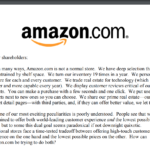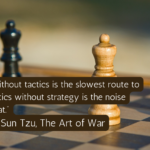Apart from the soft and hard skills required for a product manager, ‘Attitude’ is a crucial element that can make or break your product journey. It can help you transform your product in the right direction if you get your attitude right.
Be a continuous learner
Technology changes, new ideas blossom, new tools come up, great books are composed, experts conduct masterclasses, online courses from experts, super tweets are out, and many more. This new generation of product managers has to keep their eyes and ears open to many of the great content available. Product managers are ruling out traditional methods, and they are laying down new paths. If you are not learning from all of these new sources, you’re falling behind. Invest your time and money in learning, and you will not regret it.
Genuinely connect with people
As a product manager, you connect with people, talk to many people, and people are the most incredible resource to build great products. It would be best if you made genuine connections not only to develop products but to make your journey exciting. People are inspiring in many ways. They are the talent pool, and along with you, they are growing every day by learning new things. Get inspired by them, appreciate them, and build a bond that you can rely on. Don’t only talk about technical or business when you connect; go beyond it and give it a human touch. You’re talking to humans and not machines, so why just technical?
Accept product critics
A lot of people are going to complain about your product in different ways. Be open to listening to them. Jot down the points. Introspect why they said it and what you can do about it. You should get inspired by critics to come back strongly rather than getting disheartened or ignoring the person. Get comfortable with uncomfortable situations or comments about your product. Work on the gaps, fix the bugs, review your user experience, understand the pain points, and get it resolved. Then get ready for the next critique. Building products is a long journey with thousands of steps.
Be ready to take punches in the face
You’re not perfect and are a work in progress. Dealing with people, new technology, trying out your hypothesis, changing hats, churning new features, addressing business problems, influencing people, and driving people without authority is not easy. You’re bound to make mistakes, and someone is going to pull the trigger on you. Learn how to handle punches. Relax, Reflect, and work on the challenge. Be there and work it out.
Fill the gaps and be ready to wash the dishes
You’re trying to make ends meet, build a product with new ideas, and solve critical problems. You will find many gaps that someone else should be addressing or owning, and you may not always have that leverage. You need to step in and get it done. Don’t complain if it’s not your job in the first place; check the patterns and bring in the right people to help you. Don’t let your ego come in and bite you as you fill the gap for others. In the long run, this does not matter – what matters is that you delivered a great product that people use.
Own the product
You’re in the driving seat of your product. You are not doing it just because it is your job. If you consider Product Manager is a job, you have diluted its true essence of it. Don’t assume your role to be a favor for your boss or your company to get paid. You are not the outsider that came into the company to help out with the product development, but to drive the product as your product and company. Take pride and deep dive into what matters the most.
Try to connect the dots
Not everything will be crisp, clear, and ready-made for you to consume. You will need to identify the trends, read between the lines, understand what is not said, identify a missing piece, and connect the dots. You will be working in a grey area, and you should be comfortable with blurry/unclear things to still make sense of it. The longer you stick with the product, the better you get at it.
Be there for your team
The team is there to build the right thing, and need to be there with the team when they need you. If someone forces you to be there, you are in the wrong job. You need to be a great team player that people can count on.
Get into the habit of doing many crash courses
If you don’t understand what your data scientist is talking about, get a crash course on the topic. YouTube is free, and that’s your go-to place to crack the nut. Udemy, Coursera, Edx, masterclass – hook onto a platform that you’re comfortable with and get going. Spend the time to upgrade yourself every day.
Celebrate small wins
Someone cracked a severe problem, the team made a release or caught a good bug. Appreciate the effort and the people behind it. A genuine thank you goes a long way than an award to wait for something grand.
Try something outside of your work
Start a blog, build something small to start with, meet with like minds, admire other products around you, go off the path, and do a side hustle. You will learn a lot. If you want to be on the fastest learning track – become an entrepreneur. Your side hustle will give you a sense of business, and you will start appreciating people who startup.
Don’t compare your chapter one with someone’s chapter 20
It takes a lot of hard work, dedication, and time to achieve a position or expertise. If you are starting, give yourself time, and continue to work on your craft. Likewise, if you’re in chapter 20 of your career, don’t underestimate someone who is just starting – Keep your ego at bay. With ample online learning options as compared to a decade ago, people can scale up fast and be at par in a short time.
Appreciate other products
I admire a couple of products closely and have fascinated me with the options it brings in and how it has grown over the years. Amazon Kindle, Raspberry Pi, and Ubuntu Linux are my favorites. Understanding how things are shaping up, how they grow, what tactics they use, and what strategy they lay down is impressive. Get inspired by your favorite products and go deep into understanding what they do.
Shield your team
Your team is your best chance to make a big difference. What they do, how much they are focused on, and what value they bring is critical for your business. Protect them in a way that they don’t get distracted. Ensure there is a rhythm for releases. Avoid their context switching by prioritizing the right items and then stick it for long enough until those items get done. You deeply understand what the engineering team has built so that you don’t need to go back for clarification. Be thorough with your understanding of the product.
Risk is an attitude
You should not be risk-averse; instead, you should have a good risk appetite. It would be best if you bet more based on data, gut feeling, your research, your team, and prospects that it will bring in for your product. Taking no risk is a significant risk in itself. Being in a product, you can’t always play safe. You need to take a calculated risk and be ready to fail at times. If you’re not allowed to fail, you’re in the wrong place.
Be super enthusiastic
Your passion for the product should reflect in your every action. Be curious to know things about how it works. Think product, talk product & walk product. Your passion and energy should be infectious and every team member should go the extra mile to achieve the impossible.
I learned a lot of these from experience, reading various books, and being an entrepreneur. Some notable books for product management on this topic – Inspired, Zero to One, & Mindset.


Mangesh is Product Leader
Full Bio here – https://mangesh.bhamre.in










